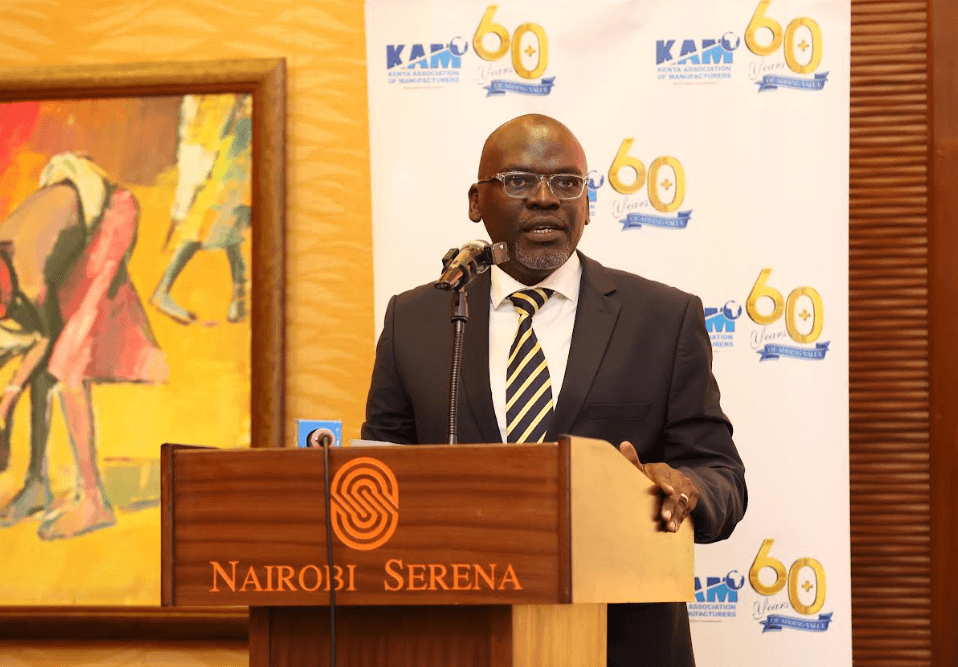Many families in Kenya have experienced tragedies whereby an otherwise healthy person just dies all of a sudden.
During such cases, speculation often takes centre stage, and this being Africa, many of these deaths are blamed on witchcraft.
It has, however, been established that many sudden deaths in the country are caused by undiagnosed Non-Communicable Diseases (NCDs).
Kilifi doctor Duncan Chai of the BlueNile Mkoroshoni medical centre says Kenyans hardly make an effort to keep their health in check through routine checkups and hospital visits.
“Many people go to the hospital just when they feel sick,” Chai says.
“Actually, we are supposed to cultivate a culture of visiting the hospital even when we feel our health is in the best shape. Just go get checked because there are so many silent illnesses out there.”
Many Kenyans hardly know their health status, he says, and most are normally shocked when, during a routine check, they are informed to be suffering from a disease they had no idea of.
The medic says it’s important for people to constantly check their blood sugar level, blood pressure, haemoglobin content, blood density and cholesterol level, among others.
“We have lots of lifestyle diseases and non-communicable diseases that we are either not aware of or are aware and doing nothing about,” he says.
NON-COMMUNICABLE DISEASES
Simply put, the conditions in which people live and work and their lifestyles influence their health and quality of life.
And that’s exactly how NCDs come into play.
Chai explains that such factors are the leading causes of heart attack, pulmonary embolism and sudden rise in blood sugar levels.
“People need to form a habit of conducting yearly medical checks to be able to catch such diseases before they blow out of proportion and cause death,” he says.
“If you get checked, they will be able to notice it, apprehend it and save your life. If you sit at home, you die without knowing why.”
The medic says many people have lost lives after it was established at the last minute that they were suffering from such illnesses and it became impossible for the medics to save their lives.
“You may be living with high blood pressure and are not aware. You could be having blood clots or deep vein thrombosis and have no idea. Some are diabetic and are unaware. All these become easy to detect if you develop a habit of having medical checks,” Chai says.
“With the likes of heart attack, pulmonary embolism and sudden rise in blood sugar, you will be dead in a few hours or minutes.”
He says there are instances where people know the health condition they are suffering from but choose to do nothing to control it and eventually end up dead.
“One may be aware that they are, for instance, obese but still don’t take any measures, including dietary changes and exercise, to keep it in check. With time, the body gives in and becomes an easy target for NCDs. You wake up one day and hear they collapsed and died despite not being sick,” he says.
Lamu doctor Nicholas Shukuru encourages people to take medical covers and use them to stay healthy and catch the ‘silent diseases’ before they strike and kill.
“Every medical cover has a yearly checkup cover, make use of it. Alternatively, let people save some amount of around Sh50,000 a year to do a full body checkup. It will save you a lot of stress if you wait for the disease to strike first,” he says.
Shukuru encourages people to equip their parents and other elderly relatives with blood pressure machines to enable them to monitor their blood pressure right in the comfort of their homes.
“There is no witchcraft here. It’s simply the known or unknown conditions we harbour in our bodies. Let’s equip our elderly relatives with these machines and encourage them to do yearly checks as well. That could save lots of lives,” he says.
There is no witchcraft here. It’s simply the known or unknown conditions we harbour in our bodies
THE DEADLY FACTS
Doctor Shukuru says unless urgent action is taken, the rising NCDs burden will add great pressure to already overstretched health systems and pose a major challenge to development.
He says the country grapples with four major NCDs: cardiovascular diseases, cancers, diabetes and chronic respiratory diseases, all of which make up 57 per cent of all the NCD deaths in Kenya.
“The other 43 per cent of deaths are caused by less prevalent NCDs like epilepsy, sickle cell disease and other haematological disorders, Alzheimer’s disease, Lupus, Psoriasis, genetic conditions and congenital anomalies,” Shukuru says.
He says cardiovascular diseases are the leading cause of death in Kenya, with an estimated mortality rate of 13.8 per cent.
“We are talking about hypertension, chronic ischemic heart disease or heart attack, cerebrovascular disease or stroke, cardiomyopathy, valvular heart disease and pericarditis,” he says.
The prevalence of hypertension has increased over the last decade, with the STEPs survey 2015 showing that close to a quarter of Kenyans had hypertension.
This prevalence increased with age with more than half of those above 40 years being hypertensive.
“Sadly, only 4 per cent of the patients under treatment achieved control, portending a big risk of long-term complications like heart attacks, strokes, blindness and renal failure,” Shukuru says.
The medic says cancer is the second-leading cause of NCD-related deaths in Kenya after cardiovascular diseases. It accounts for 8 per cent of the overall national mortality.
According to The STEPwise approach to Surveillance survey of 2015, there are very low levels of cervical cancer screening among women between 25 to 49 years, at 14.2 per cent.
“Early detection ensures a favourable outcome and prognosis of most cancers. About 70 per cent of reported cases in Kenya are detected at an advanced stage, when very little can be achieved, and outcomes are very poor,” he says.
Lamu doctor Chris Margan lists diabetes as the third-most prevalent cause of NCDs in Kenya, with the country registering more than 8,700 diabetes-related deaths in 2015, almost all under the age of 60 years.
The STEPs survey found that more than 88 per cent and 87 per cent of the male and female population of Kenyans have never had their blood sugar level tested, leading to a late diagnosis of diabetes.
This late diagnosis contributes to the high morbidity and mortality burden, which occurs at a younger age before the age of 60.
“It is estimated that Kenya has one of the highest proportions of deaths from diabetes for persons below 60 years among the East African countries,” Margan says.
The medic explains that undiagnosed individuals with diabetes are likely to experience complications even before a diagnosis is made, leading to irreversible consequences.
Chronic respiratory diseases come in as the fourth-most prevalent cause of sudden deaths in the country.
“We are talking about chronic obstructive pulmonary disease (COPD), asthma, occupational lung diseases and pulmonary hypertension,” he says.
COPD is a life-threatening lung disease that may progressively lead to death, with approximate 1.7 per cent of annual deaths reported.
The medic says most NCDs are caused by shared risk factors, including tobacco use, alcohol, obesity, unhealthy diets, physical inactivity and environmental pollutants, agrochemicals, heavy metals and toxins.
While the burden in dealing with NCDs largely lies with the national and county governments, Margan says, individual strategies at the family level will equally go a long way in keeping one safe and free of the NCDs.
“Frequent checks are what we are encouraging people to do since most of the statistics that we have seen, people have died without even knowing what was ailing them or discovering it very late, when nothing could be done to save lives,” he says.
Lamu medic Paul Korir says every citizen has a personal responsibility to their own health, and those healthy choices as far as our lifestyles go will heavily determine whether or not one dies prematurely.
“Watch what goes into your mouth by keeping a healthy diet. Be physically active, you don’t have to go to the gym. Take a walk every day and exercise in your home. Stay away from tobacco and alcohol if you can. If you are obese, do something about it. In the end, it's our lives that matter,” Korir says.
Medic Samuel Vidonyi recommends building the capacity of the healthcare system to deliver NCDs services, prioritising NCD prevention among young people and conducting heightened and targeted advocacy.
“We are talking about developing clinical guidelines, training health workers and community health workers, and establishing clinics to deal with the growing burden. Let there be adequate research on how exactly to bring down the numbers,” Vidonyi says.

















